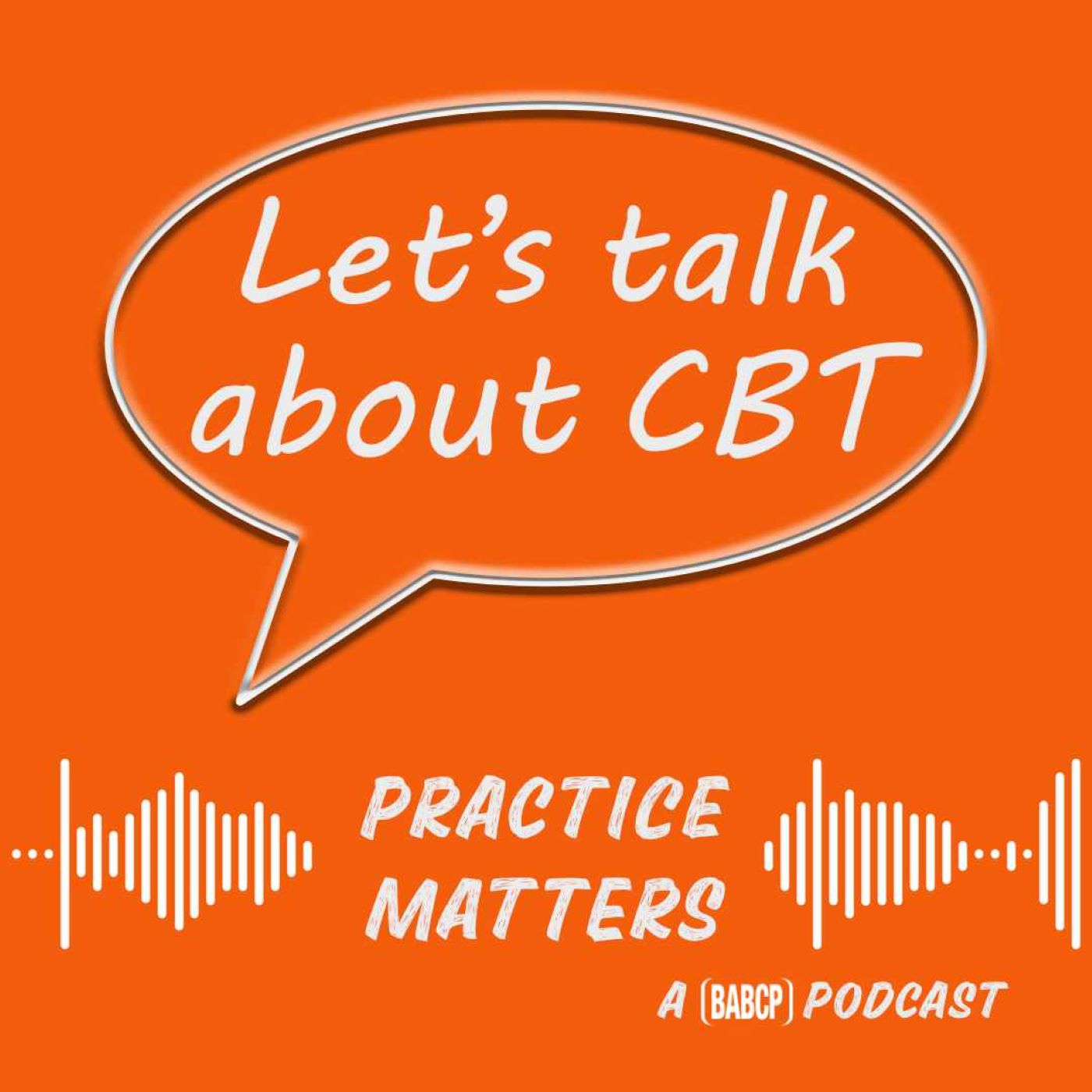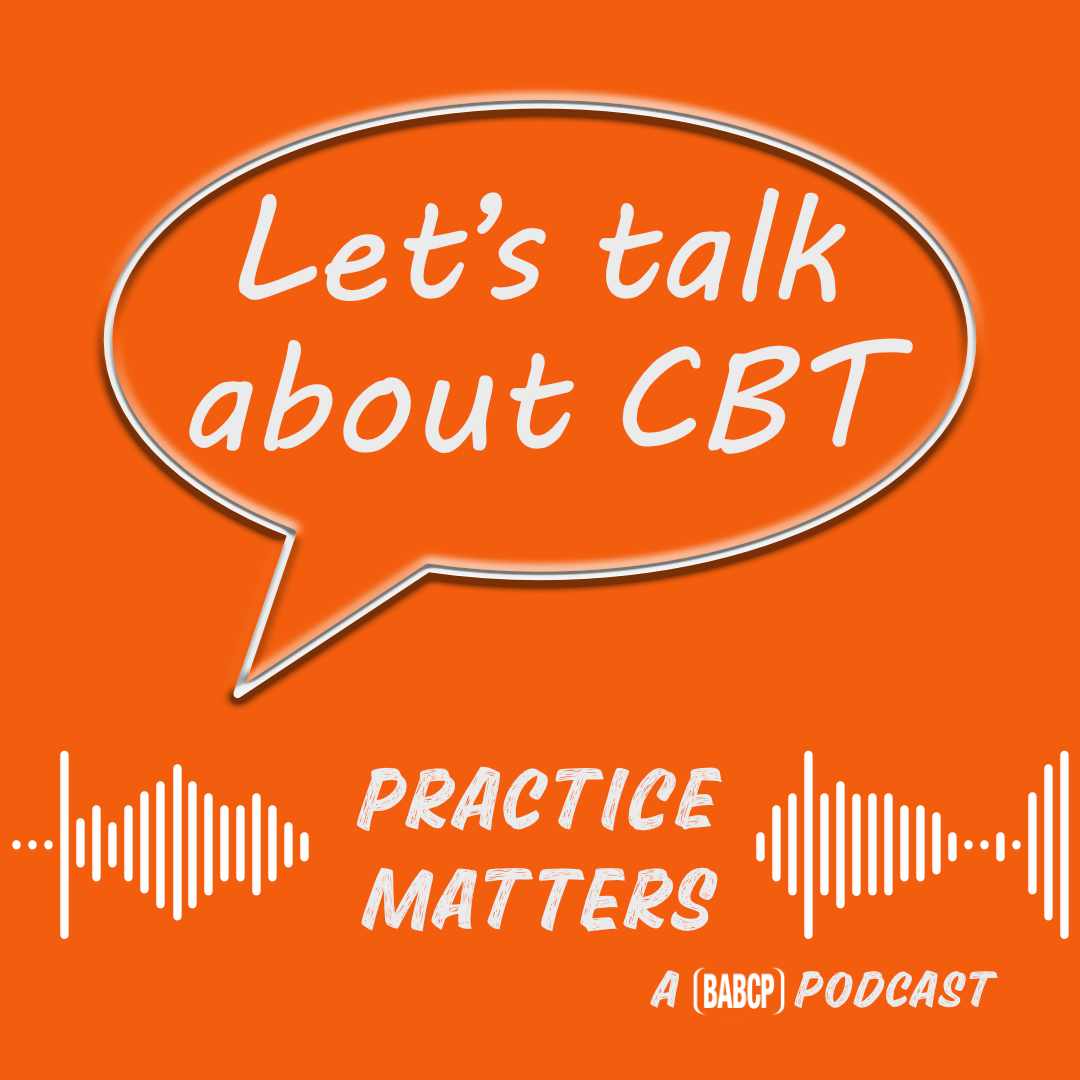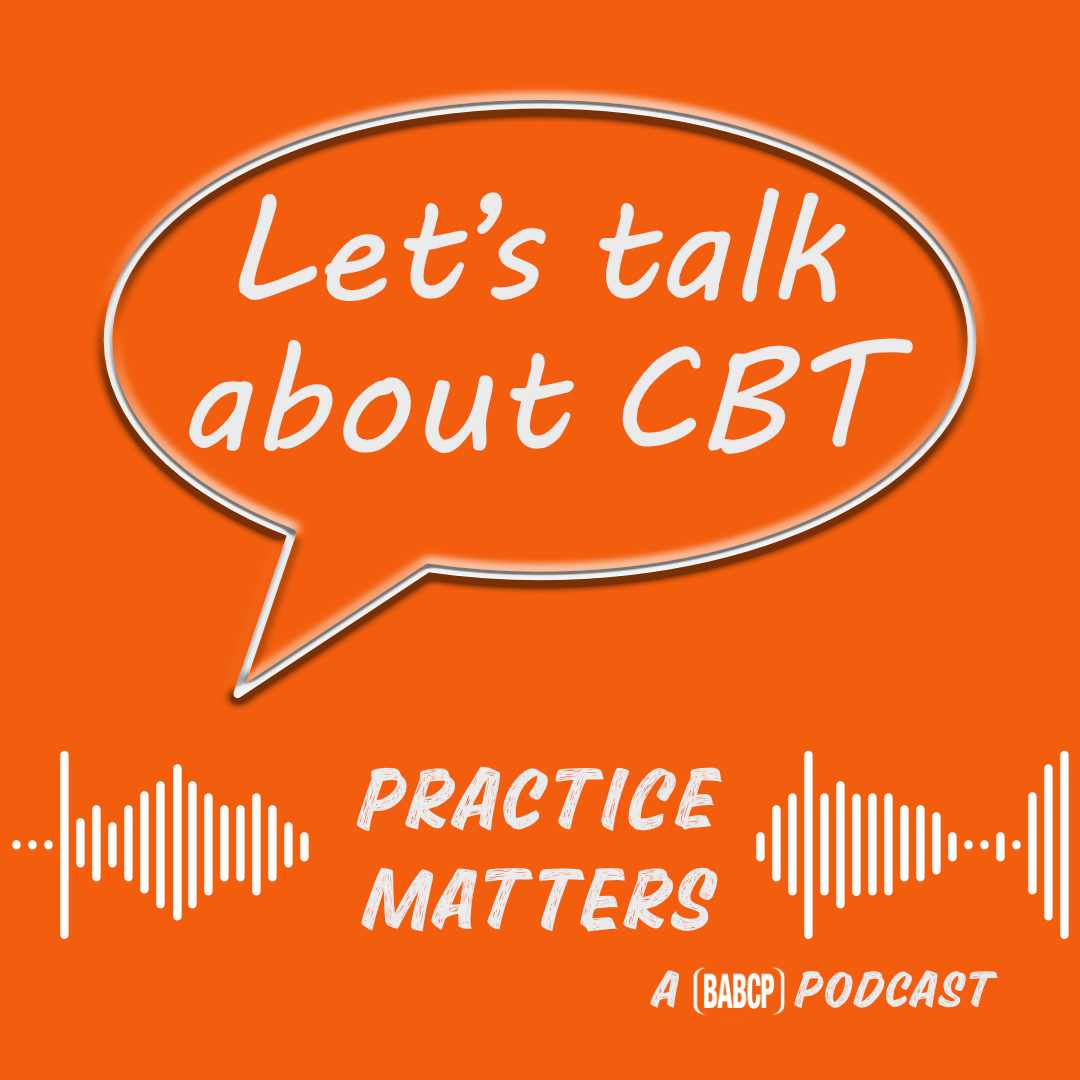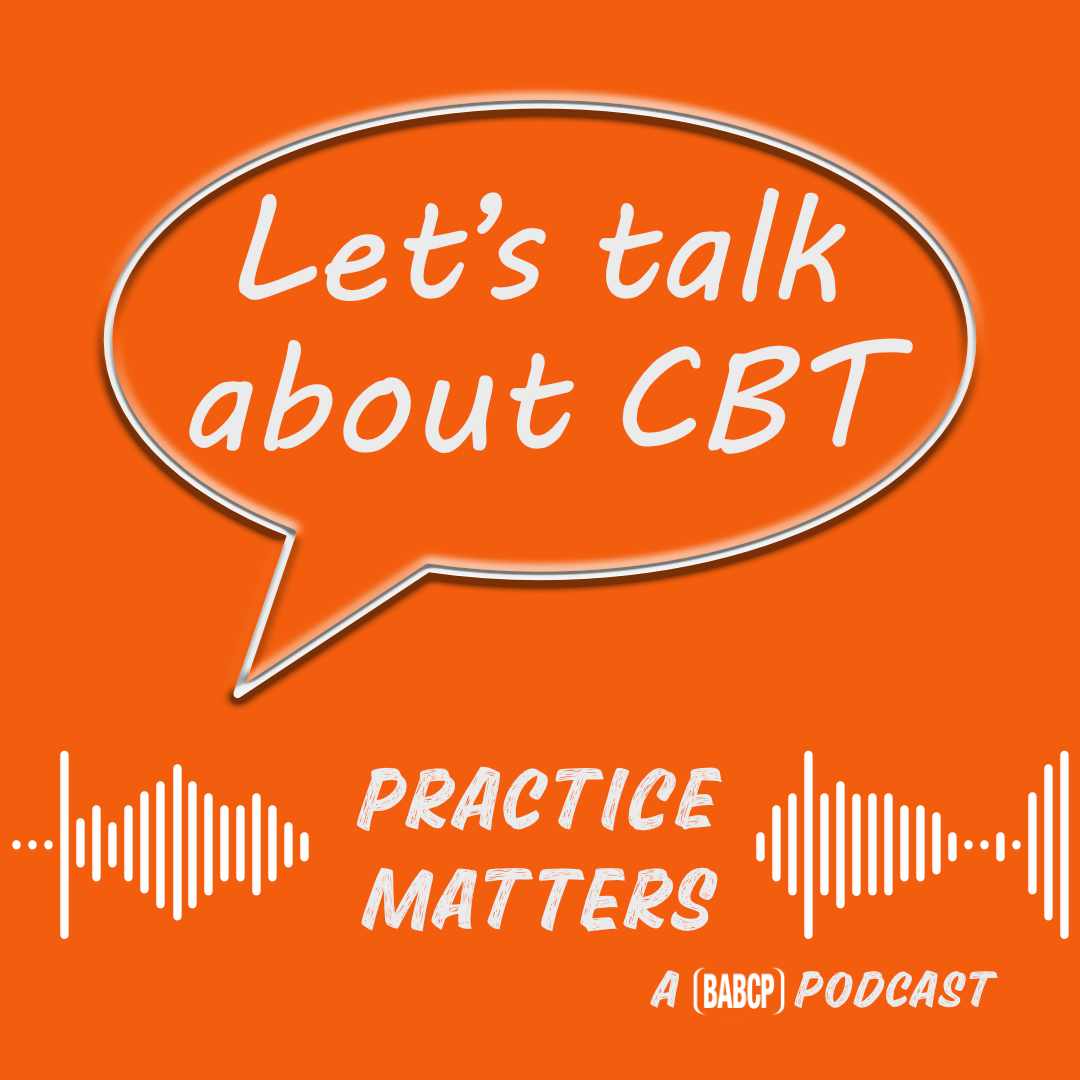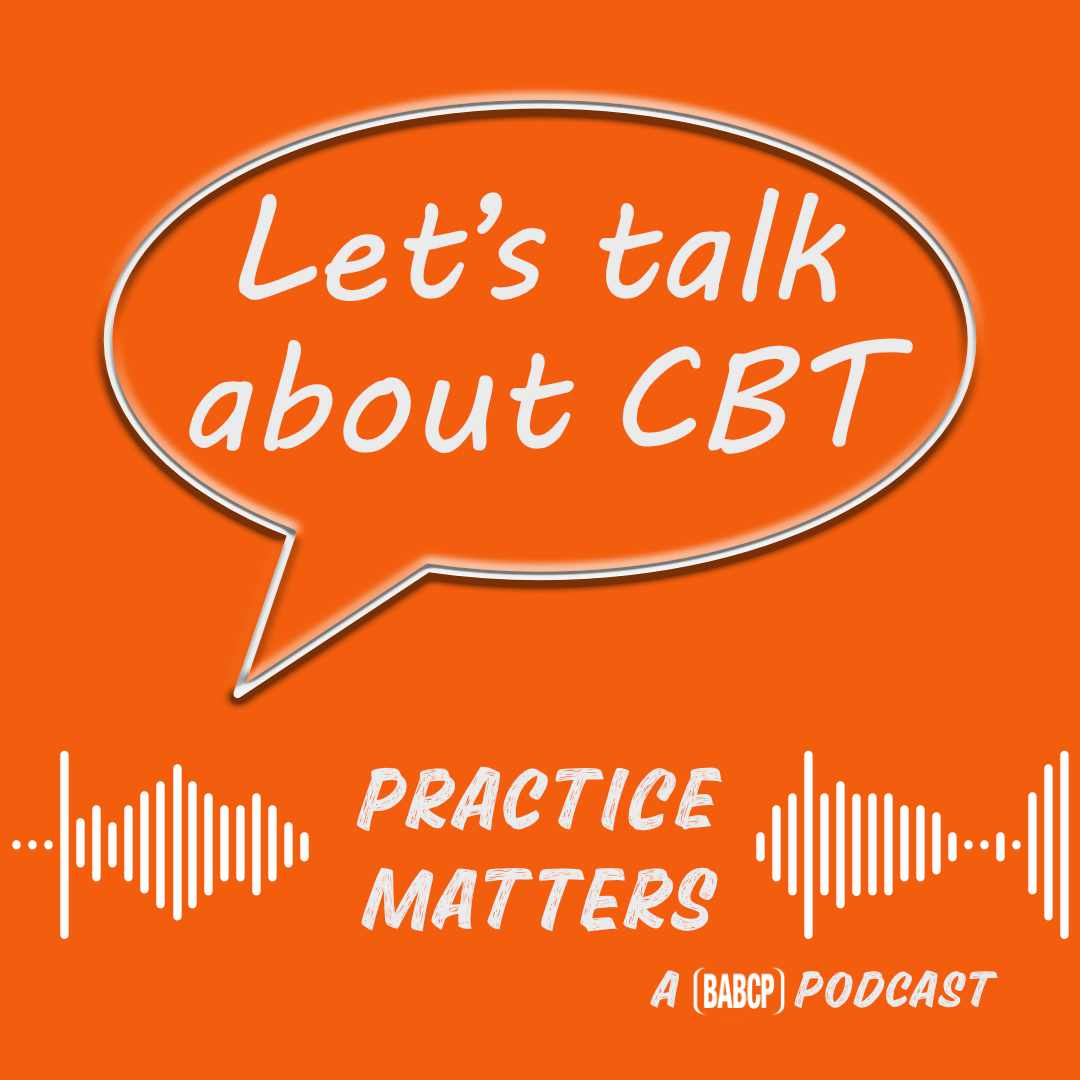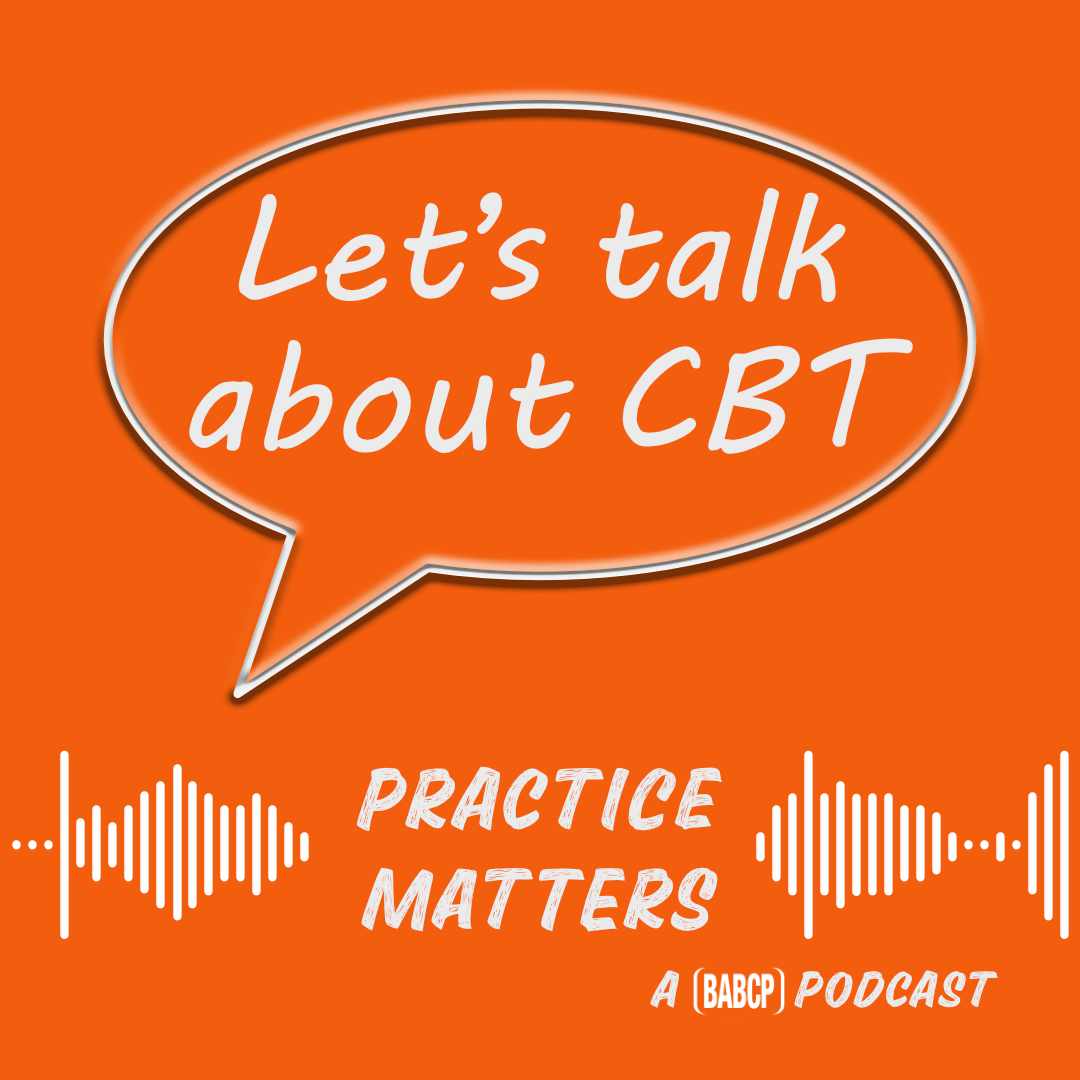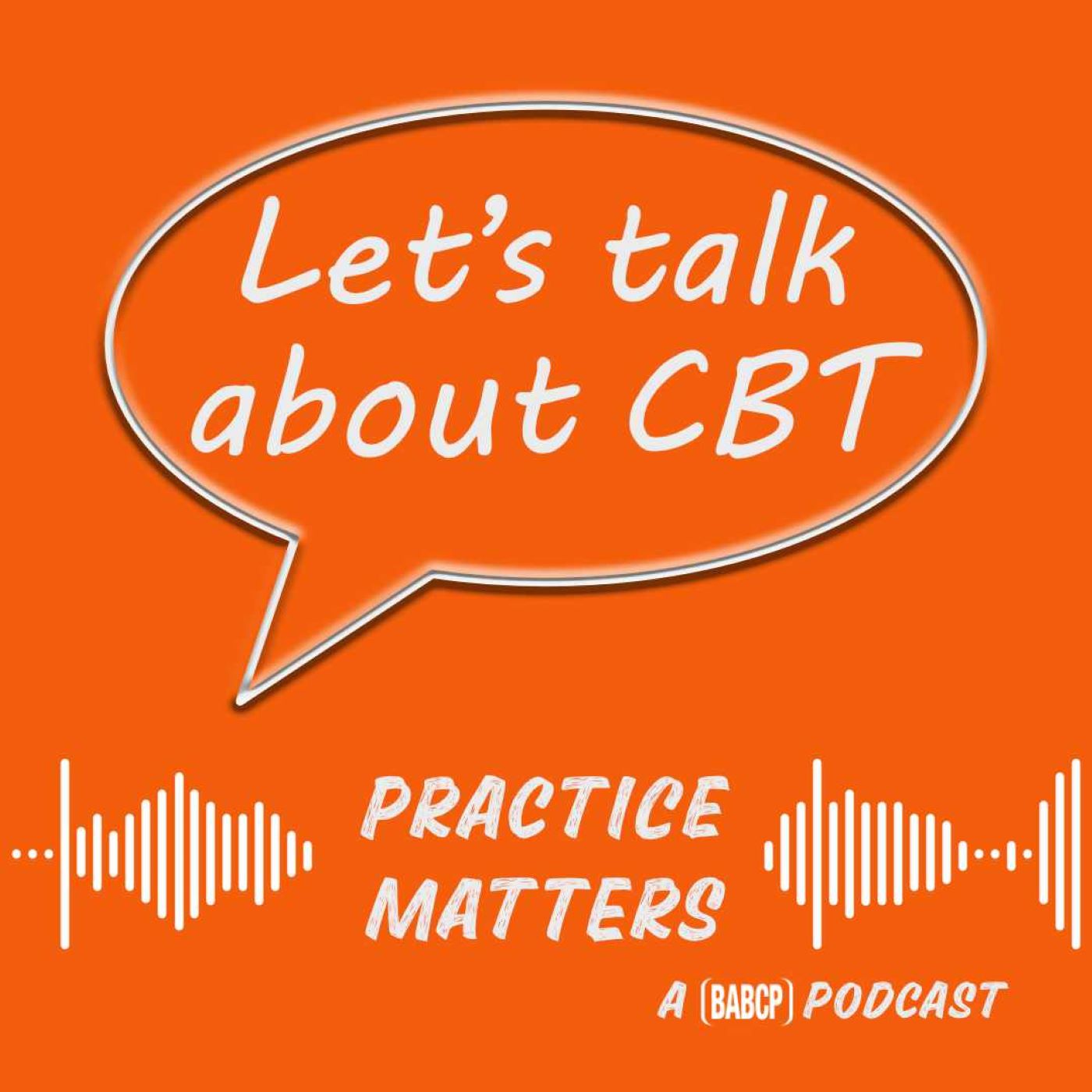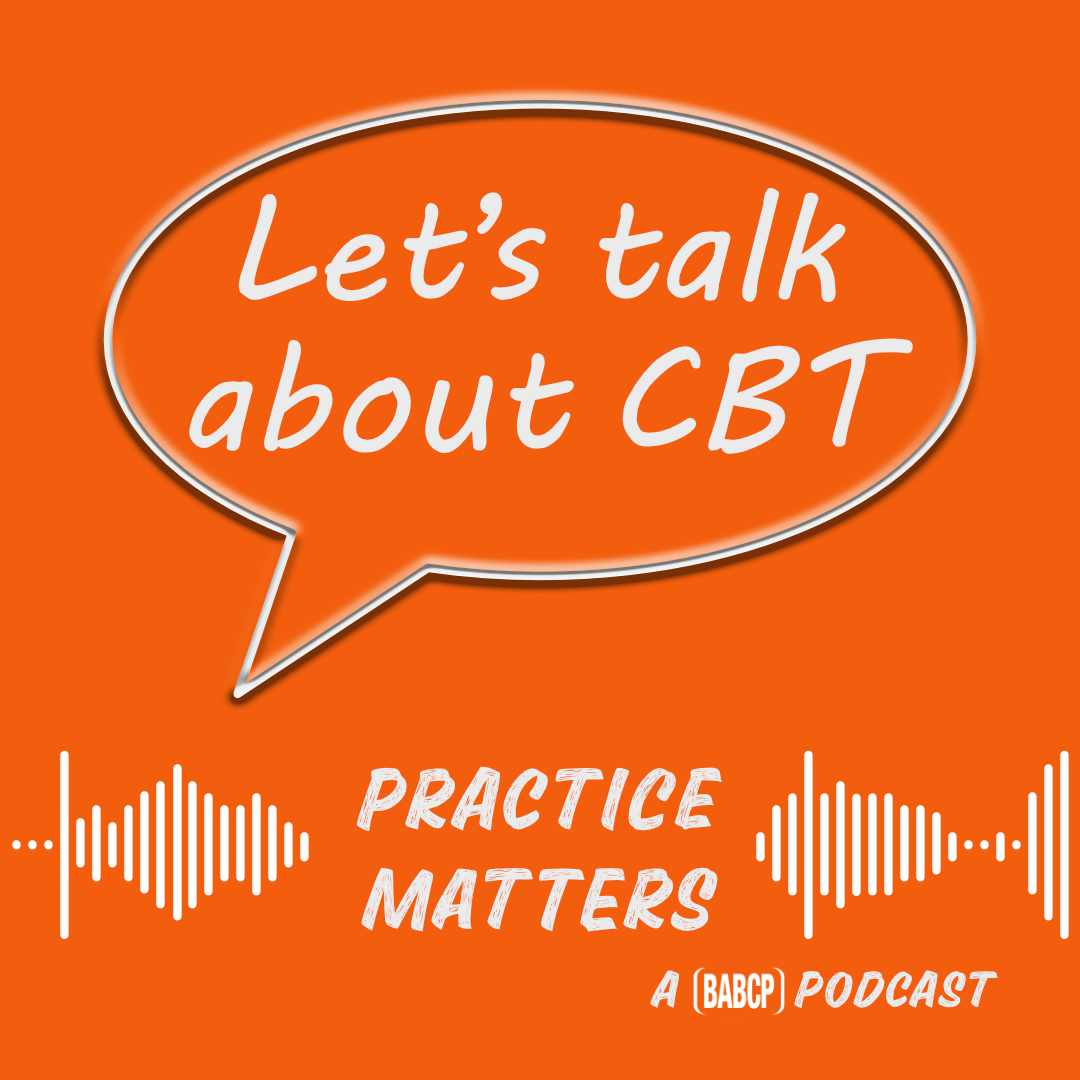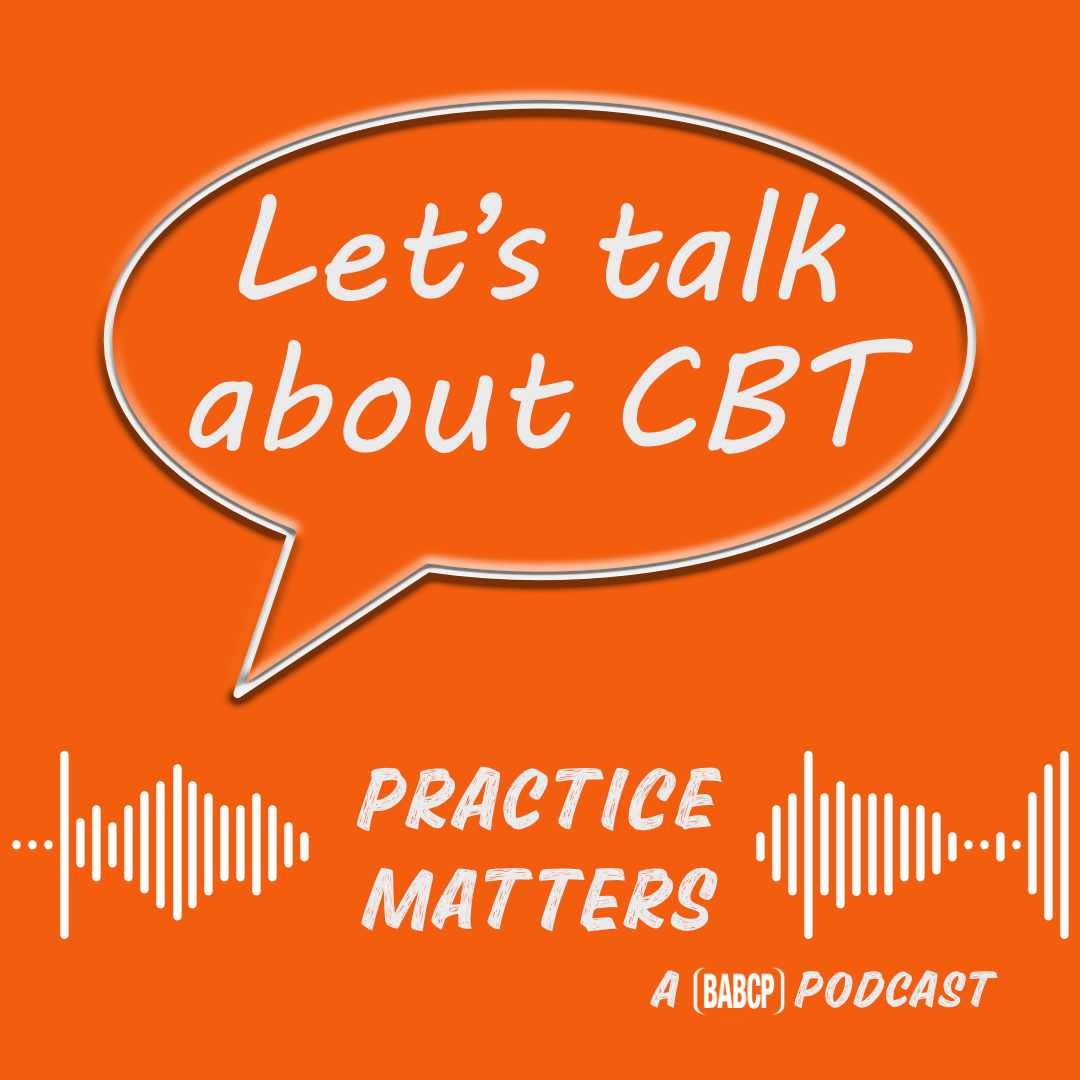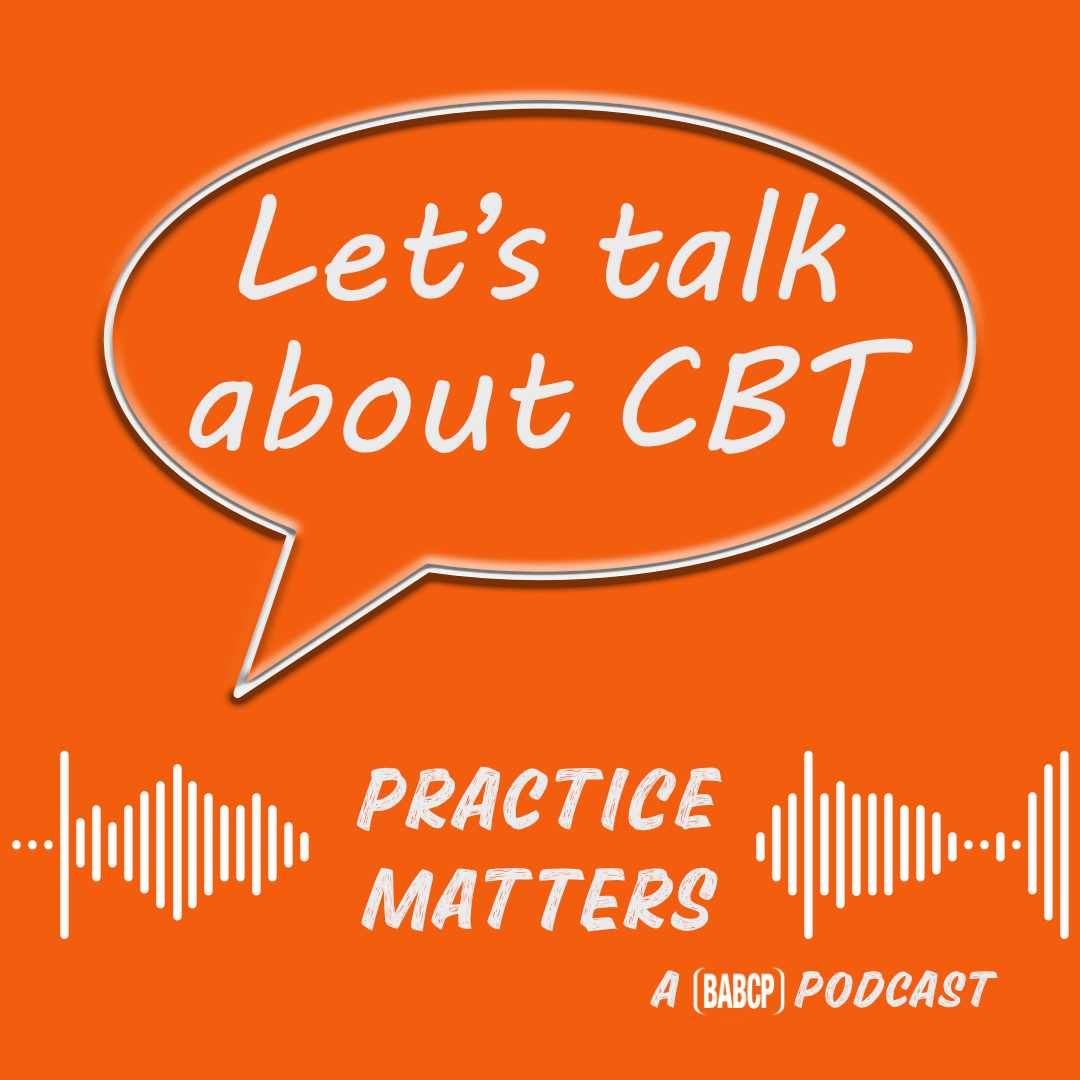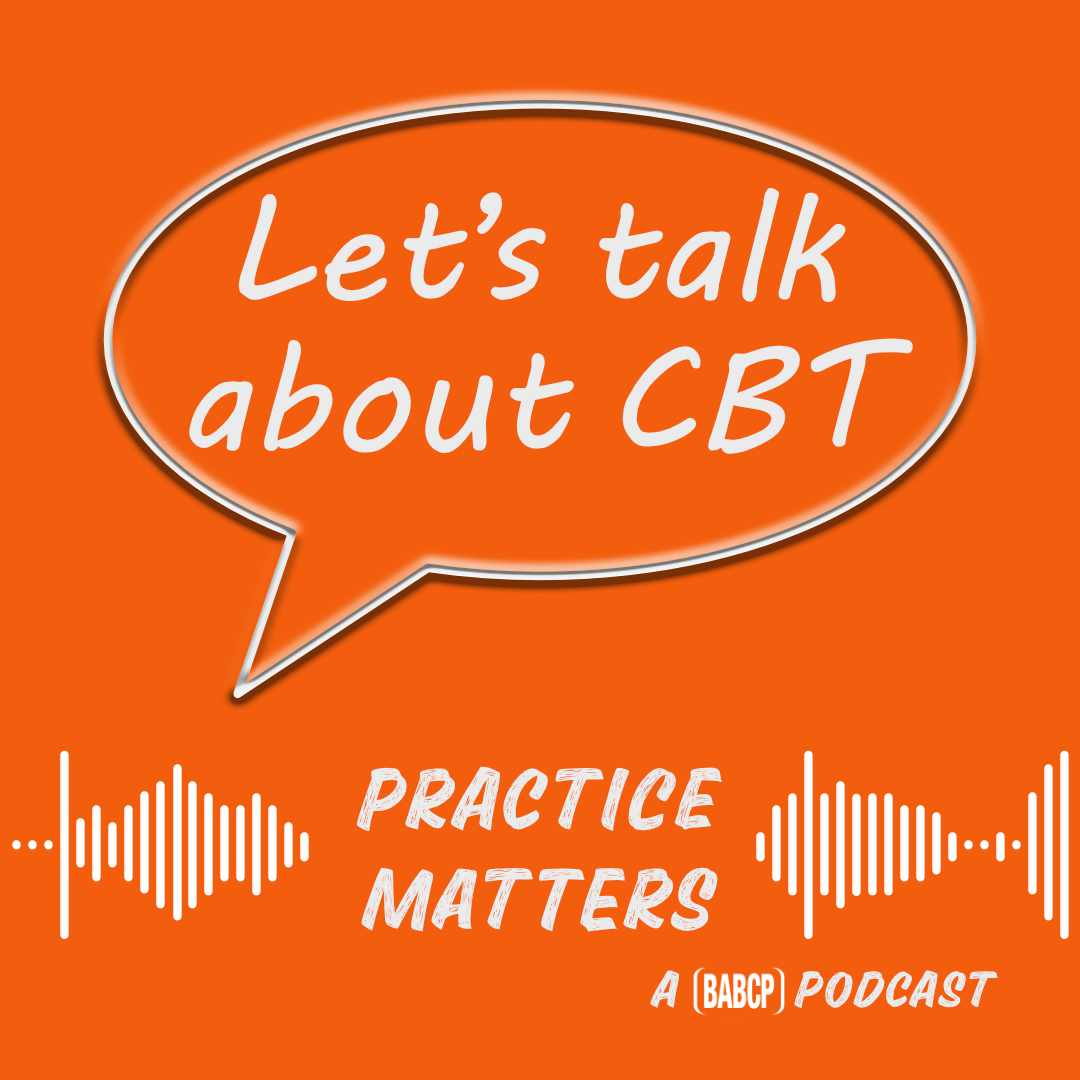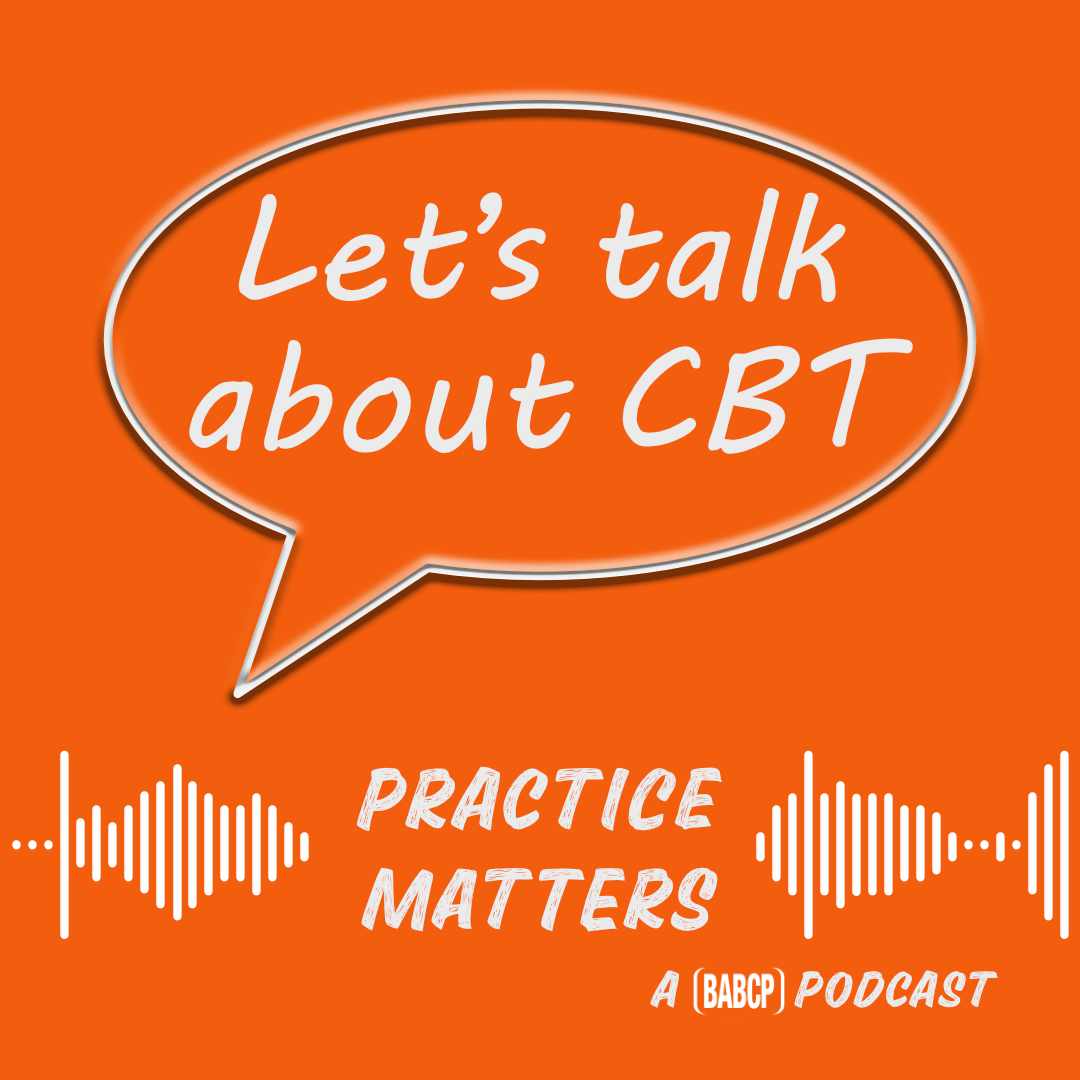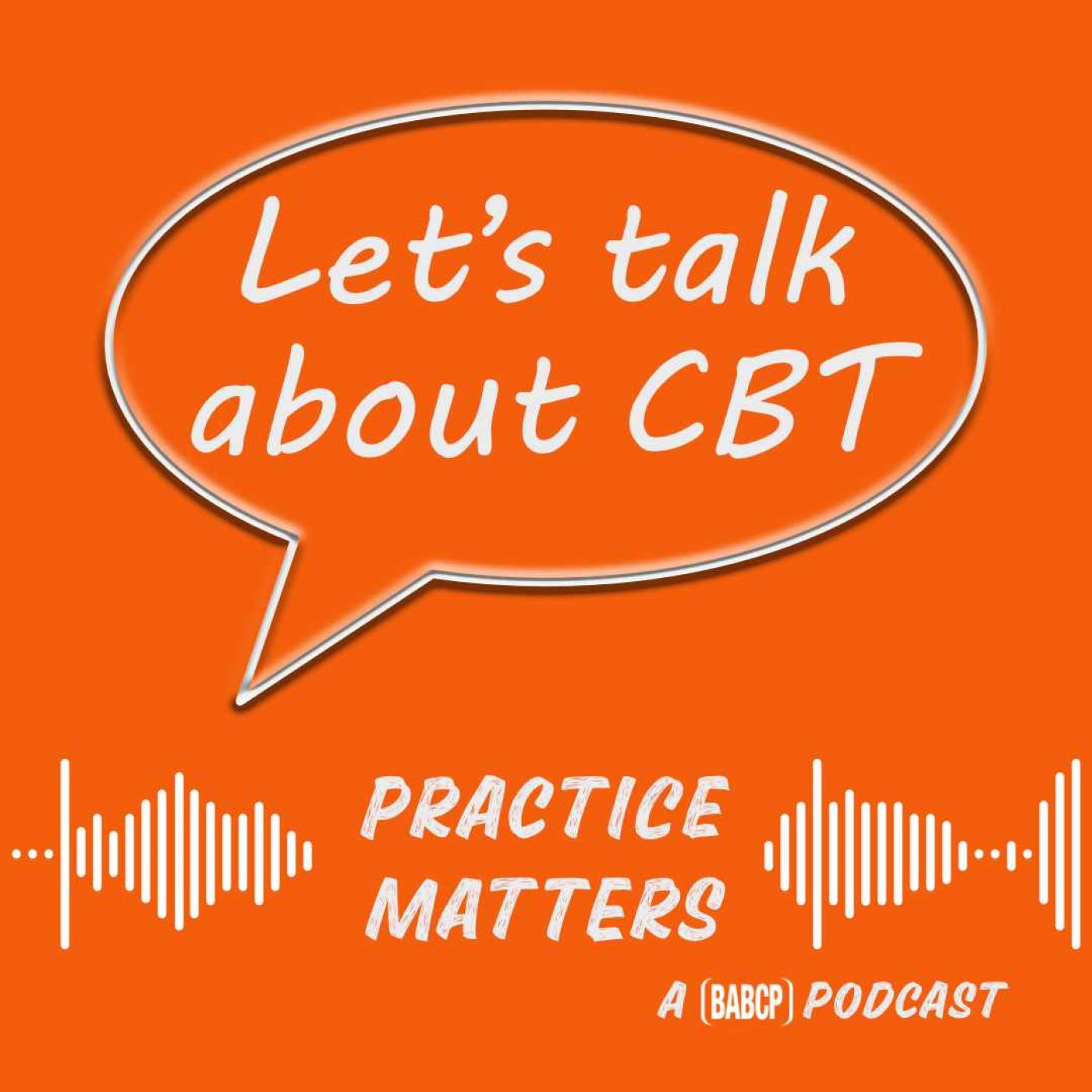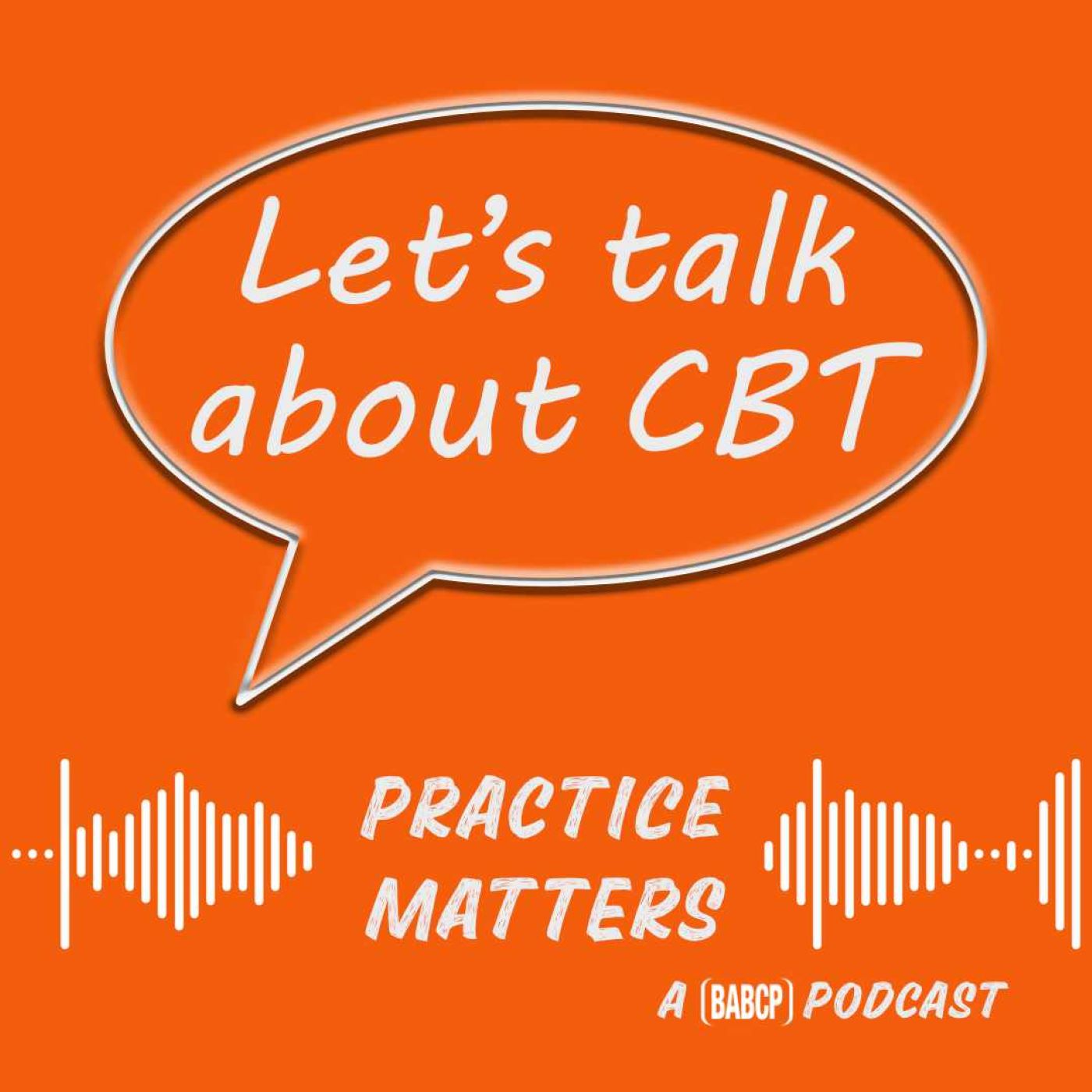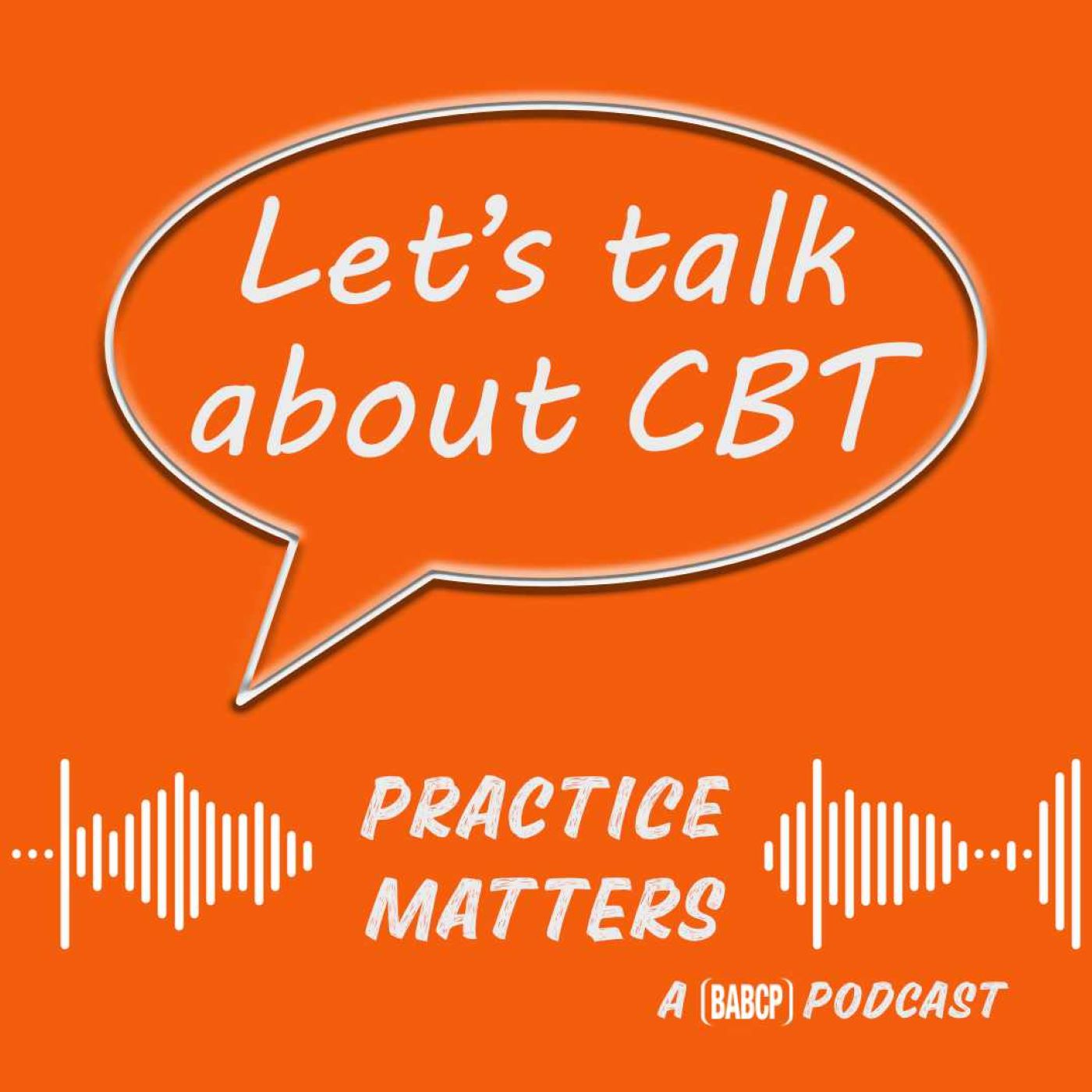Being a professional nosy parker…Ken Laidlaw on working with older adults
Description
Let’s Talk about CBT has a new sister podcast: Let's Talk about CBT: Practice Matters with a brand-new host Dr Rachel Handley, CBT therapist and Consultant Clinical Psychologist.
Each episode Rachel will be talking to an expert in CBT who will share their knowledge, experience, research and professional and personal insights to help you enhance your practice and help your patients more effectively. Whether you are a novice or a seasoned clinician we hope you will find something to stimulate thought and encourage you in your work.
This episode Rachel is talking to Prof. Ken Laidlaw, a leading expert in aging about Cognitive Behavioural Therapy for older adults. He debunks myths and misconceptions about CBT with this population, highlights the evidence base for its effectiveness and discusses interventions, adaptions and challenges. Ken shares his personal journey into clinical psychology and his passion for working with older people. He emphasizes the importance of defining older people in the context of mental health and challenges ageist stereotypes
If you liked this episode and want to hear more, please do subscribe wherever you get your podcasts. You can follow us at @BABCPpodcasts on X or email us at podcasts@babcp.com.
Credits:
Music is Autmn Coffee by Bosnow from Uppbeat
Music from #Uppbeat (free for Creators!): https://uppbeat.io/t/bosnow/autumn-coffee
License code: 3F32NRBYH67P5MIF
Useful Links:
Ken Laidlaw (2015), CBT for Older People, SAGE
Future Learn online course on CBT with Older People https://www.futurelearn.com/courses/cbt-older-people
NHS talking therapies positive practice guide: Older People https://babcp.com/Therapists/Older-Adults-Positive-Practice-Guide
A Clinician’s Guide to: CBT with older people https://issuu.com/thecbtresource/docs/laidlaw___chellingsworth_cbt_with_older_people_iap
British Society of Gerontology https://www.britishgerontology.org
Professor Ken Laidlaw publications: https://www.researchgate.net/profile/Ken-Laidlaw
Transcript:
Rachel: Welcome to Let's Talk About CBT Practice Matters, the BABCP podcast for therapists using cognitive behavioural therapy with me, Rachel Handley. Each episode, we talk to an expert in CBT who share insights that will help you understand and apply CBT better to help your patients.
Today, I am delighted to welcome Professor Ken Laidlaw to the podcast to talk about CBT with older people. On our agenda today is the evidence base for CBT with older people, including myths and misperceptions, adaptions to CBT with this population, common challenges and solutions, and what we can learn more generally from work with older people.
But first, to introduce Ken, Professor Ken Laidlaw is a clinical psychologist with world leading expertise in the psychology of aging, CBT for older people and attitudes to aging. Ken has published and developed a multitude of research papers, treatment manuals, books and guidelines, including leading on the NHS Talking Therapies Positive Practice with Older People Guidelines recently updated and hosted on the BABCP website.
Ken retired from his role as Professor of Clinical Psychology and program director of the clinical psychology doctoral training program at Exeter University in 2022 because of caring responsibilities. Thankfully, as things have improved, he's returned to part time clinical practice working with NHS Scotland, and he remains Emeritus Professor in psychology at Exeter.
Over and above all those wonderful qualifications. I'm particularly thrilled to welcome you Ken as a friend, mentor, and former colleague. Through working with you closely in clinical training, I learned that your values align really closely with those of this podcast. You're a committed educator who invests enthusiastically in the development of psychological professionals, you're committed to excellence in research and research led practice. And despite working in the most demanding of leadership roles, you've always maintained your clinical practice within the NHS and your passion for working with older people. Ken, you're also a humble person and you won't like all those nonetheless factual accolades.
But I suspect you might like to tell us a little bit about your journey into clinical psychology before you had all these professional achievements under your belt and how this has shaped your practice and approach to your work.
Ken: Well, thank you first Rachel for such a privilege and such an honour to be invited to speak to you on this and especially given we have such a good friendship and I've been very privileged to have your friendship and your professional collaboration. There's lots of things at Exeter recently in recent years that I couldn't have achieved if we hadn't worked together. And so thank you first for doing this. And you're right. I do kind of think it's important to try to be humble and have humility by what we do, and I recognize that in you as well. So we've got shared values on similar ethos and similar approaches to working hard and trying to do the best we can.
I got into clinical psychology training through an interesting, odd route, I suppose. So I left school at 16 and, I didn't really know what I wanted to do. I stayed on, did a few O levels, O grades in Scotland at the time. And then, as was traditional in my family, went to work for the National Coal Board and I did an apprenticeship. It was a four-year apprenticeship. And it was really there that education started to click for me. I started to really enjoy education partly it was to do with, I was going out with this girl at the time who later became my wife, and she was studying at university and just to keep her company, I would just study with her. And then I got the bug for education. And when I was at day release college, everything just started to click into place for me. Clearly, I was a late developer. And because I was working for British Coal and the National Coal Board, there was a strike in 1984, I was involved in the strike, and it was round about that time I decided I needed to think of what I was going to do for the rest of my life, because I wasn't going to be able to work in this place for the rest of my life, and didn't want to be working in that place for the rest of my life, but, I then got interested in in perhaps taking my college education further and, and perhaps going to university.
And I was the first person in my family to go to university and I went later in life. I was about 26 when I went to university and so I took this vocational course. It was a nursing degree at Edinburgh University. And when I was there, we had to do clinical work alongside our training. And that was great. And I was doing psychology as an outside option from a degree. And I started when I was doing my clinical work, I started meeting these clinical psychologists. And I thought, that's the job I'd really like to do. And I was very fortunate, there was a, there was a couple of clinical psychologists, there was Ian Robertson, Nigel North, and Bob Lewin, at the Astley Ainslie Hospital.
And they were really kind to me, and they helped me, and supported me, and eventually, weirdly, I got on clinical psychology training. That, that's, that's how I got to be a clinical psychologist. I had to give up my nursing degree, switch over to psychology. I was advised against doing that. I did it nonetheless, and I did my psychology degree, got on clinical training, and A whole new world opened up for me.
It was fantastic. And at the time, I was really fortunate. When I trained at Edinburgh, there was a woman called Ivy Marie Blackburn. And it was Ivy Marie Blackburn who brought CBT to the UK. It was Ivy Marie Blackburn who, as one of the pioneers of CBT, really lit a fire for me around CBT. So before, when I first set out to do clinical psychology training, I wanted to do it because I wanted to be a neuropsychologist. And I was particularly interested in stroke, so always interested in older people, but I was interested in stroke. But then I met Ivy and I just got inspired by Ivy, and I just got captured by her evident passion for CBT, and just the ideas, and it was like, this was just like, amazing new world of possibilities has opened up for me, that the way we think about something affects our behaviour and affects how we feel, and because our psychological and physical state are not disconnected if you change one thing you change everything and let's start with thoughts. I mean it was like "this is amazing”. So that was really when I got really interested in CBT but I couldn't have, I couldn't have predicted, even when I started being interested in clinical training, that I'd be interested in CBT
Rachel: And you said that you were interested in working with stroke initially, you always had an interest in working with older pe

